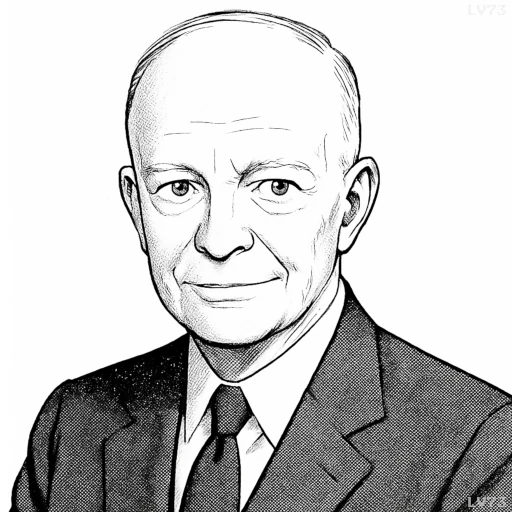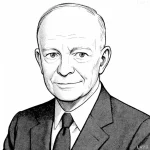“I shall make that trip. I shall go to Korea.”

- October 14, 1890 – March 28, 1969
- American
- The 34th President of the United States, General, Military Leader
table of contents
Quote
“I shall make that trip. I shall go to Korea.”
Explanation
This brief but resolute declaration marked a turning point in Dwight D. Eisenhower’s 1952 presidential campaign and reflected his commitment to ending the Korean War, which had become increasingly unpopular among the American public. By promising to personally visit the war-torn Korean Peninsula, Eisenhower signaled both decisive leadership and a willingness to engage directly with the conflict, distinguishing himself from the sitting administration and appealing to a nation weary of prolonged military engagement.
The historical context is critical. The Korean War, begun in 1950, had settled into a bloody stalemate by 1952, with no clear resolution in sight. Eisenhower’s pledge, made in a campaign speech shortly before the election, became a powerful moment of political strategy and moral resolve. It demonstrated his readiness to act rather than merely criticize, and it helped solidify public support. True to his word, he visited Korea shortly after winning the presidency, gaining firsthand insight that would inform his later push for an armistice.
This quote still resonates as an example of how symbolic gestures, when backed by action, can influence public confidence and policy direction. In today’s geopolitical climate, leaders who make similar commitments—showing up in crisis zones or taking personal initiative—are often measured against Eisenhower’s standard of purposeful engagement. His statement reminds us that leadership involves not just decisions, but presence and conviction.
Would you like to share your impressions or related stories about this quote in the comments section?


